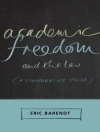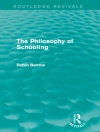Isaac Deutscher is widely recognized as one of the foremost political biographers of the twentieth century, and his full-scale studies of Trotsky and Stalin, translated into many world languages, have played a major role in elucidating the character and fate of the Russian Revolution.
He died on 19 August 1967, at the height of his powers. From his papers his widow, Tamara Deutscher, selected and edited a group of essays and articles with a special unity of theme: the place of the Jew in the modern world. In these essays Deutscher speaks of the emotional heritage of the European Jew with calmness and clear-sightedness; as a historian he writes without anger but with com�passion; as a non-Jewish Jew he writes without religious belief, but with generous breadth of understanding. As a philosopher he writes first of some of the great Jews of Europe: Spinoza, Heine, Marx, Trotsky, Rosa Luxemburg, and Freud. He explores the Jewish imagination through the painter Chagall. He writes of the Jews under Stalin and of the `remnants of a race’ after Hitler; of the Zionist ideal, of the establishment of the State of Israel, of the war of June 1967, and of the perils ahead.
Giới thiệu về tác giả
Isaac Deutscher was born near Krakow in 1907. First a poet and literary journalist, he joined the outlawed Polish Communist Party in 1926, where he was active until his expulsion in 1932. He moved to London in 1939 just before the outbreak of World War II to embark on a successful journalistic career. In 1946 he decided to become a freelance historian, writing many books, of which the most important is perhaps his Trotsky trilogy.












